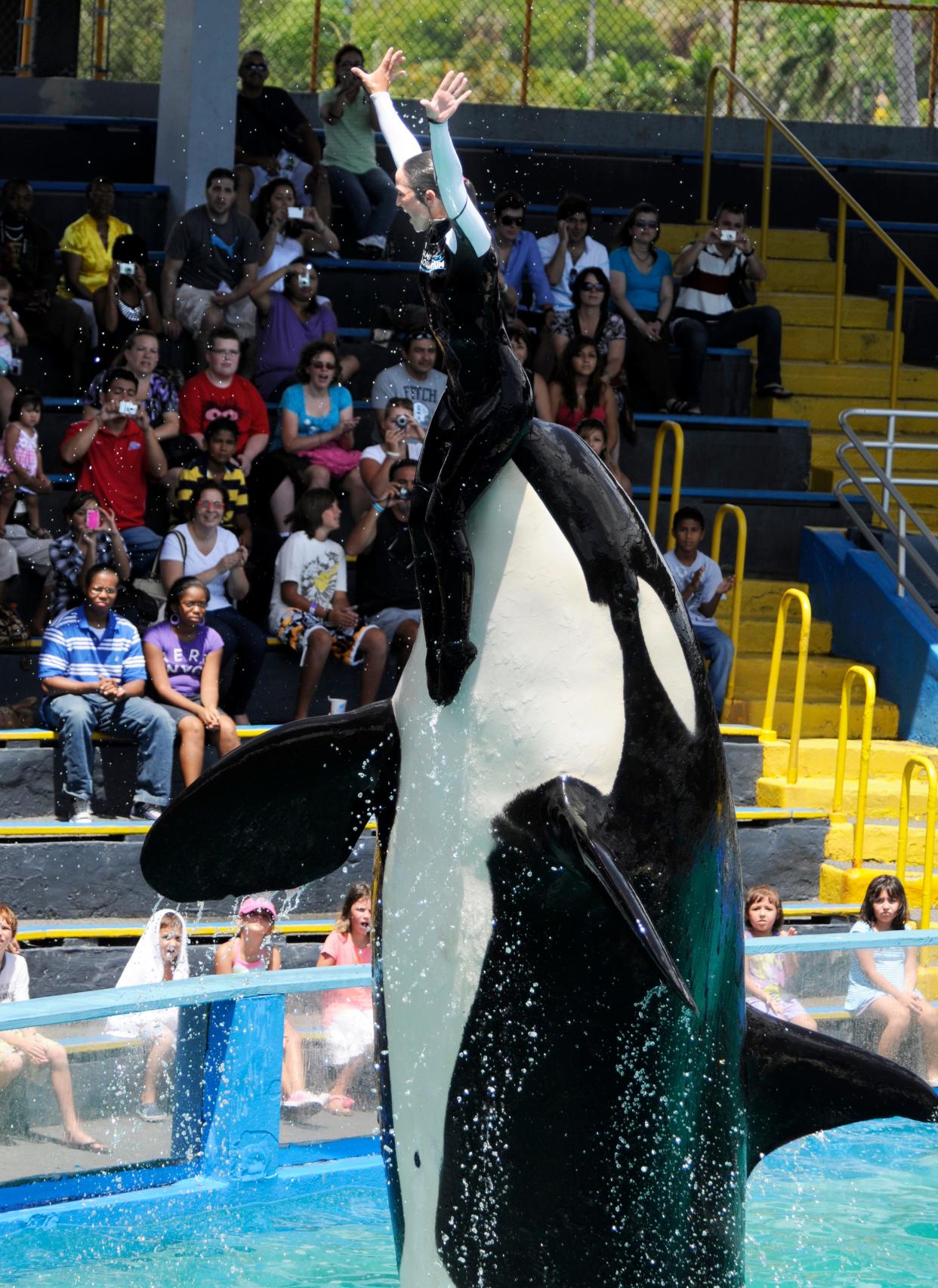NFL team owner joins effort to send "home" Lolita the Killer Whale from Miami Seaquarium

- Oops!Something went wrong.Please try again later.
The owner of the Indianapolis Colts professional football team said he will be in Miami on Thursday to support efforts to free and "return" home arguably one of the world's most famous captive orcas.
Jim Irsay confirmed in a social media post that he will join what has been a decades-long advocacy for the release of Lolita the Killer Whale from the Miami Seaquarium.
"I’ll be at a big press conference in Miami on Thursday at 11:30am for a HUGE ANNOUNCEMENT about the future of LOLITA the orca," Irsay wrote on his Twitter account. Irsay, whose Colts organization has also been engaged in mental health issues and advocacy, did not elaborate.
The marine park on Key Biscayne in Miami-Dade County had sent a notice Wednesday alerting a press conference slated for Thursday to discuss a "historic initiative" among key players to "return" the "beloved orca, Lolita, from Miami Seaquarium to her home waters."
Those native waters would be the Salish Sea area of the Pacific Northwest that spans Washington State and Canada's British Columbia province. Her repatriation has been a more than quarter-century effort among wildlife advocates, naturalists, philanthropists and, at times, government officials.
Lolita, known as Tokitae in the Pacific Northwest and Sk'aliCh'elh-tenaut by the area's Native American Lummi Nation, was violently trapped and taken from those waters in August 1970. A number of other orcas in her Southern Resident Killer Whale pod died in the barbaric attack, and Lolita was sold to the Seaquarium where she was a regular daily circus-type performer until she was retired in 2021 around the time she became ill.
Previous story: Dark waters, dark secret: Untold story of failed bid to free South Florida orca Lolita
Read also: Miami Seaquarium acknowledges killer whale Lolita has been ill
Related story: Old Florida animal tourism yields to New Florida enlightened conservation centers
Announcement raises hopes among advocates for release of Lolita the Killer Whale
Wednesday's announcement raised hopes that the long-wanted objective might lie ahead. One of the organizations that clamored for her release is PETA, or People for the Ethical Treatment of Animals, which has fought legal battles with the Seaquarium over the orca's captivity and living quarters, a tank at the park the group and others have long argued was inadequate and unhealthy for an apex predator.
"If Lolita is finally returned to her home waters, there will be cheers from around the world, including from PETA, which has pursued several lawsuits on Lolita’s behalf and battered the Seaquarium with protests demanding her freedom for years," said Jared Goodman, vice president and general counsel for Animal Law at the PETA Foundation. "If the Seaquarium agrees to move her, it’ll offer her long-awaited relief after five miserable decades in a cramped tank and send a clear signal to other parks that the days of confining highly intelligent, far-ranging marine mammals to dismal prisons are done and dusted."
Still, there at least two major obstacles, observers have long stated.
One is Lolita's age and health. The marine park's new owners, the Dolphin Company, conceded last year as they took over management of the 1950s era park that concerns raised by PETA and others were correct, the orca said to be in her late 50s, was seriously ill.
Since then, she has been under the care of a team of veterinarians employed by the park as well as independently contracted with funds provided by donors. The team has issued monthly updates on her condition, which has been improving, but the veterinarians have not addressed her possible relocation.
The second major unknowns are the positions of federal and state government officials.
The Salish Sea region is watched closely by the National Oceanic and Atmospheric Administration's fisheries and wildlife division. NOAA, as well as Washington State officials, would have to sign off, regulate and generally oversee any movement of Lolita back to her home waters. Canadian officials would also be involved, advocates have said.
They would have to approve not just her transfer to the Pacific Northwest, but whatever facilities are built to house or keep her.
A major consideration for federal regulators, wildlife advocates in the region have said, is the alarming decline of the Southern Resident Killer Whales, a migratory pod of just over 70 orcas in the wild. The orcas are on the endangered species list and their numbers have dropped to what is believed to be a near historical low.
Many marine biologists and researchers in the area believe the Southern Residents could be on a path to extinction. And that's led to major battles in the past decade over removing river dams to spawn more salmon food supply, curtail toxins in the water and regulate popular whale watch boating activities that research has shown increases noise pollution and disrupts the orcas' ability to hunt.
Antonio Fins is a politics and business editor at The Palm Beach Post, part of the USA TODAY Florida Network. You can reach him at afins@pbpost.com. Help support our journalism. Subscribe today.
This article originally appeared on Palm Beach Post: Indianapolis Colts Jim Irsay joins effort to free Lolita the Killer Whale

